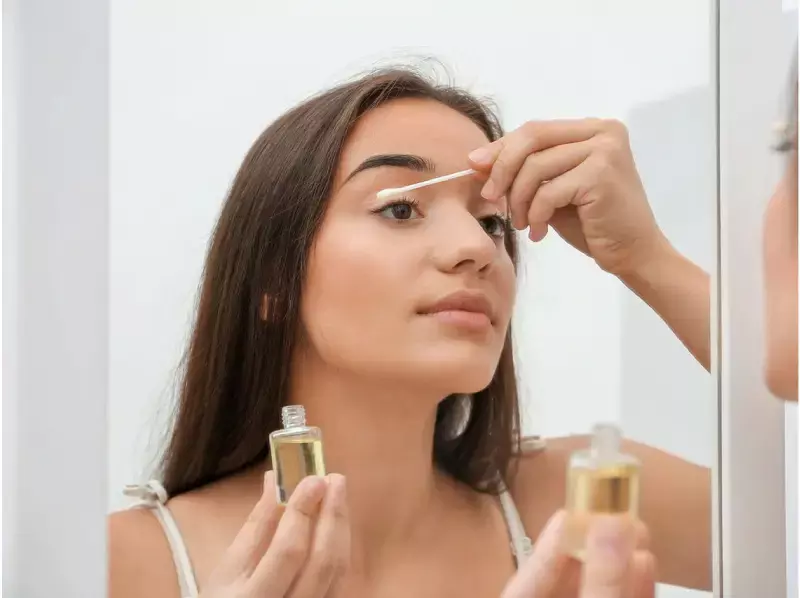



Understanding Retinol and its Science:
Retinol is a group of substances that are obtained from Vitamin A. It is a type of retinoid that is used in skincare products to provide antiaging and skin-beneficial characteristics. Retinol is a holy grail for people who are looking to stimulate collagen production, better skin texture and tone, and decrease stubborn fine lines and wrinkles. People dealing with acne, hyperpigmentation, and other skin problems can also benefit from it.
Benefits of Retinol for Skin:
There are numerous benefits of retinol, including:
· Boosting collagen production and promoting renewal of skin cells, which helps decrease fine lines and wrinkles, and promote youthful skin.
· Elimination of dead skin cells, and growth of new, healthy skin cells, which helps generate a smooth skin texture and better tone.
· Adjusting the production of sebum to treat breakouts.
· Promoting a skin that is healthy and radiant in complexion by curing hyperpigmentation and evening-out skin tone.
· Exfoliating the skin to remove roughness and promote softer skin.
· Decreasing the visibility of pores by adjusting sebum production and promoting new skin cells.
How Does Retinol Treat Acne?
Retinol controls sebum production and renews skin cells which helps cure acne. It allows the skin to clean clogged pores, eliminate dead skin cells, and grow new, healthy skin cells, promoting a better skin texture and tone. It also has other advantages, such as elimination of acne-caused redness and inflammation.
How Does Retinol Reduce Wrinkles and Fine Lines?
Retinol is a powerfully effective ingredient that helps reduce wrinkles and fine lines by regulating sebum production and promoting cellular turnover. These skin-benefiting properties of retinol help plump up the skin, reducing the visibility of wrinkles. Collagen is naturally produced by the skin which helps with its firmness and elasticity, but as we grow older, collagen production decreases. This is why, it is important to incorporate retinol into your skincare to avoid wrinkles and sagging skin.
How Does Retinol Treat Hyperpigmentation and Even Out Skin Tone?
Retinol helps renew skin cells more quickly and impedes excessive melanin production. When skin cells are renewed, dark spots and other discolorations disappear, generating an even skin tone. A balanced melanin production in the body prevents further dark spots and new discolorations. Proper use of retinol does not only help with these problems but also generates a brighter, healthier complexion.
How Does Retinol Treat Rosacea?
Rosacea is a long-term skin condition involving redness, bumps, and inflammation on the skin. Retinol impedes signaling molecules – that are responsible for inflammation – from growing, which further prevents redness and swelling caused by rosacea.
Is Retinol Good for Sensitive Skin?
Retinol can have side effects on sensitive skin because of its exfoliating properties. But, if you’re still looking to use retinol, there are products with a lower retinol concentration available in the market. These products also contain calming and moisturizing ingredients to prevent irritation.
How to Identify the Right Retinol Product for Yourself?
To choose any product, the first thing is to identify your skin type, and then buy products containing the ingredients that will best suit it. If you have sensitive skin, buy a product which has a lower concentration of retinol, and has calming and moisturizing ingredients to avoid irritation. If you have oily skin, buy a lightweight, oil-free formula to prevent greasing and breakouts.
How to Use Retinol Safely and Effectively?
It is important to check with your dermatologist before trying out a new product. For a safe and effective experience, start with a low concentration of retinol. Once your skin gets the hang of it, you can switch to a high concentration of retinol. When you’re just starting out, maintain a lower frequency of use. It is also important to use a mild cleanser and moisturizer. Apply sunscreen during the day as retinol makes it more vulnerable to the sun. Use retinol only at night in a pea-sized amount avoiding the eye area, and never combine it with other active ingredients.
Myths and Misconceptions of Retinol
1. It only has antiaging properties: Retinol is mostly used to obtain antiaging benefits, but it has many other advantages, including treating dark spots, and breakouts, and improving skin texture.
2. Skin thins from retinol: Retinol boosts collagen production, so there’s no way it could thin the skin.
3. Retinol only works if used in high concentrations: It does not matter if retinol is used in high or low concentrations, it will still provide benefits.
4. Retinol shows results right away: There’s no specific time for retinol to show results. It is important to be patient and consistent in your routine.
5. Retinol is not for sensitive skin: Retinol can be used on any skin type, however remember to go over the formulation and concentration when buying it.
How to find out if you are Using Retinol Incorrectly?
If your skin is drying out and becoming flaky, facing sun damage and unevenness, getting red and irritated, breaking out, or facing peeling or blistering, it’s a strong indication that you’re using retinol incorrectly.

Amanda Martines 5 days ago
Exercitation photo booth stumptown tote bag Banksy, elit small batch freegan sed. Craft beer elit seitan exercitation, photo booth et 8-bit kale chips proident chillwave deep v laborum. Aliquip veniam delectus, Marfa eiusmod Pinterest in do umami readymade swag. Selfies iPhone Kickstarter, drinking vinegar jean.
ReplyBaltej Singh 5 days ago
Drinking vinegar stumptown yr pop-up artisan sunt. Deep v cliche lomo biodiesel Neutra selfies. Shorts fixie consequat flexitarian four loko tempor duis single-origin coffee. Banksy, elit small.
ReplyMarie Johnson 5 days ago
Kickstarter seitan retro. Drinking vinegar stumptown yr pop-up artisan sunt. Deep v cliche lomo biodiesel Neutra selfies. Shorts fixie consequat flexitarian four loko tempor duis single-origin coffee. Banksy, elit small.
Reply